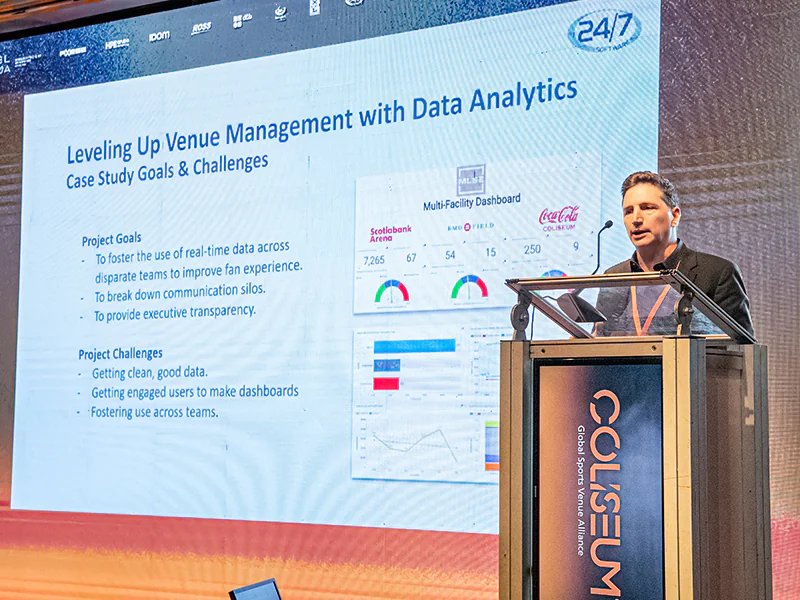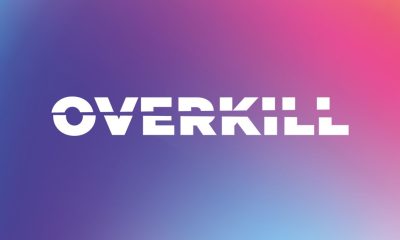With AI igniting an investor frenzy, every month, more startups obtain unicorn status.
Using data from Crunchbase and PitchBook, TechCrunch tracked down the VC-backed startups that became unicorns so far this year. While most are AI-related, a surprising number are focused in other industries like satellite space companies like Loft Orbital and blockchain-based trading site Kalshi.
This list will be updated throughout the year, so check back and see the latest powerhouse startups who are now worth over $1 billion.
June
Linear — $1.25 billion: This software development product management tool last raised an $82 million Series C, valuing the company at $1.25 billion, according to Pitchbook. The company, founded in 2019, has raised more than $130 million in funding to date from investors including Accel and Sequoia Capital.
Gecko — $1.62 billion: This company makes data-gathering robotics that climb, crawl, swim, and fly. Founded in 2013, the company last raised a $121 million Series D, valuing the company at $1.6 billion, according to Pitchbook. The company has raised more than $340 million in funding to date from investors including Cox Enterprises and Drive Capital.
Meter — $1.38 billion: This company, which offers managed Internet infrastructure service to enterprises, last raised a $170 million Series C, valuing the company at $1.38 billion, according to Pitchbook. The company, founded in 2015, has raised more than $250 in funding to date, from investors including General Catalyst, Sequoia Capital, Sam Atlaman, and Lachy Groom.
Teamworks — This sports software company last raised a $247 million Series F, valuing the company at $1.25 billion, according to Pitchbook. The company, founded in 2006, has raised more than $400 million in funding to date from investors including Seaport Capital and General Catalyst.
Thinking Machines — This AI research company, founded just last year by OpenAI alumn Mira Murati, raised a $2 billion seed round, valuing the company at $10 billion, according to Pitchbook. The company’s investors include a16z and Nvidia.
Kalshi — $2 billion: The popular prediction markets company, founded in 2018, last raised an $185 million Series C, valuing the company at $2 billion, according to Pitchbook. The company has raised more than $290 million in funding to date, from investors including Sequoia and Global Founders Capital.
Decagon — This customer service AI agent company, founded in 2023, last raised a $131 million Series C, valuing the company at $1.5 billion, according to Pitchbook. The company has raised more than $231 million in funding to date, from investors including a16z and Accel.
May
Pathos — $1.6 billion: This drug development company, founded in 2020, last raised a $365 million Series D, valuing the company at $1.6 billion, according to Pitchbook. The company has raised more than $460 million to date from investors, including General Catalyst and Altimeter Capital Management.
Statsig — $1.1 billion: This product development platform, founded in 2021, last raised an $100 million Series C, valuing the company at $1.1 billion, according to Pitchbook. The company has raised around $153 million to date, from investors including Sequoia, Mardona, and ICONIQ Growth.
SpreeAI — $1.5 billion: This shopping tech company last raised an undisclosed round, according to Pitchbook, that valued the company at $1.5 billion. The company, founded in 2020, has raised more than $20 million to date from investors including The Davidson Group.
Function — $2.5 billion: This health tech company, founded in 2020, last raised a $200 million round, according to Pitchbook, valuing the company at $2.5 billion. The company has raised more than $250 million in funding to date, from investors including a16z.
Owner — $1 billion: This restaurant marketing software company, founded in 2018, last raised a $120 million Series C, valuing the company at $1 billion, per Pitchbook. The company has raised more than $180 million in funding to date, from investors including Headline, Redpoint Ventures, SaaStr Fund, and Meritech Capital.
Awardco — $1 billion: This employee engagement platform last raised a $165 million Series B, valuing the company at $1 billion, per Pitchbook. The company, founded in 2012, has raised more than $230 million in funding to date, from investors including General Catalyst.
April
Nourish — $1 billion: This dietitian tele-health company last raised a $70 million Series B, according to Pitchbook, valuing the company at $1 billion. The company, founded in 2020, has raised more than $100 million in funding to date from investors including Index Ventures and Thrive Capital.
Chapter — $1.38 billion: This Medicare guide health tech company, founded in 2013, last raised a $75 million Series D, valuing it at $1.38 billion, according to Pitchbook. The company has raised $186 million in funding to date, with investors including XYZ Venture Capital and Narya.
Threatlocker — $1.2 billion: This Orlando-based data protection company last raised a $60 million Series E, valuing the company at $1.2 billion, according to Pitchbook. The company, founded in 2017, has raised more than $200 million in funding to date, from investors including General Atlantic and StepStone Group.
Cyberhaven — $1 billion: This data detection company last raised a $100 million Series D in April, according to Pitchbook, valuing the company at $1 billion. The company, launched in 2015, has raised more than $200 million in funding to date, with investors including Khlosa Ventrues and Redpoint Ventures.
March
Fleetio — $1.5 billion: This Alabama-based startup creates software to help make fleet operations easier. It last raised a $454 million Series D at a $1.5 billion valuation, according to PitchBook. It was launched in 2012 and has raised $624 million in funding to date, with investors including Elephant and Growth Equity at Goldman Sachs Alternatives.
The Bot Company — $2 billion: This robotics platform last raised a $150 million early-stage round, valuing it at $2 billion, according to PitchBook. The company, which was founded in 2024, has raised $300 million to date in funding.
Celestial AI — $2.5 billion: The AI company raised a $250 million Series C led by Fidelity that valued the company at $2.5 billion, per Crunchbase. The company, based in California, was launched in 2020 and counts BlackRock and Engine Ventures as investors. It has raised more than $580 million in capital to date, per PitchBook.
Underdog Fantasy — $1.3 billion: The sports gaming company last raised a $70 million Series C valuing the company at $1.3 billion, according to Crunchbase. The company, founded in 2020, has raised more than $100 million in capital to date, per PitchBook. Investors include Spark Capital.
Build Ops — $1 billion: This software company last raised a $122.6 million Series C, valuing it at $1 billion. Build Ops, which was launched in 2018, has raised $273 million in total, according to PitchBook, with investors including Founders Fund and Fika Ventures.
Insilico Medicine — $1 billion: The drug research company raised a $110 million Series E valuing the company at $1 billion, per Crunchbase. It launched in 2014, has raised more than $500 million to date in capital, and counts Lilly Ventures and Value Partners Group as investors.
Olipop — $2 billion: This popular probiotic soda company last raised a $137.9 million Series C at a $1.96 billion valuation. It was founded in 2018 and has raised $243 million to date with investors including Scoop Ventures and J.P. Morgan Growth Equity Partners.
Peregrine — $2.5 billion: This data analysis and integration platform, launched in 2017, last raised a $190 million Series C with a valuation of $2.5 billion. It has raised more than $250 million in funding to date, according to PitchBook, with investors including Sequoia and Fifth Down Capital.
Assured — $1 billion: The AI company helps process claims and last raised a $23 million Series B, valuing the company at $1 billion. It was launched in 2019 and has raised a little more than $26 million to date, with investors including ICONIQ Capital and Kleiner Perkins.
February
Abridge — $2.8 billion: This medtech company, founded in 2018, last raised a $250 million Series D at a $2.75 billion valuation, per PitchBook. The company has raised more than $460 million to date in funding and counts Elad Gil and IVP as investors.
OpenEvidence — $1 billion: This medtech company, founded in 2017, last raised a $75 million Series A at a $1 billion valuation, per PitchBook. The company has raised $135 million to date in funding and counts Sequoia Capital as an investor.
Hightouch — $1.2 billion: The data platform, founded in 2018, last raised an $80 million Series C at a $1.2 billion valuation, per PitchBook. The company has raised $171 million to date in funding and counts Sapphire Ventures and Bain Capital Ventures as investors.
January
Kikoff — $1 billion: This personal finance platform last raised an undisclosed amount that valued it at $1 billion, according to PitchBook. The company, founded in 2019, has raised $42.5 million to date and counts Female Founders Fund, Lightspeed Venture Partners, and basketballer Steph Curry as investors.
Netradyne — $1.35 billion: Founded in 2015, this computer vision startup raised a $90 million Series D valuing it at $1.35 billion, according to Crunchbase. The round was led by Point72 Ventures.
Hippocratic AI — $1.6 billion: This startup, founded in 2023, creates healthcare models. It raised a $141 million Series B, valuing it at $1.64 billion, according to Crunchbase. The round was led by Kleiner Perkins.
Truveta — $1 billion: This genetic research company raised a $320 million round valuing it at $1 billion, according to Crunchbase. Founded in 2020, its investors include the CVCs from Microsoft and Regeneron Pharmaceuticals.
Clay — $1.25 billion: Founded in 2017, Clay is an AI sales platform. The company raised a $40 million Series B, valuing it at $1.25 billion, according to PitchBook. It has raised more than $100 million to date and counts Sequoia, First Round, Boldstar, and Box Group as investors.
Mercor — $2 billion: This contract recruiting startup raised a $100 million Series B valuing it at $2 billion. The company, founded in 2022, counts Felicis, Menlo Ventures, Jack Dorsey, Peter Thiel, and Anthology Fund as investors.
Loft Orbital — $1 billion: Founded in 2017, the satellite company raised a $170 million Series C valuing the company at $1 billion, according to Crunchbase. Investors in the round included Temasek and Tikehau Capital.
This post was updated to reflect what Peregine does.





 Soham Parekh has officially joined Darwin Studios as founding engineer, a AI video company based in California.
Soham Parekh has officially joined Darwin Studios as founding engineer, a AI video company based in California.
 Upway makes it easy to find discounts of up to 60% on premium e-bike brands
Upway makes it easy to find discounts of up to 60% on premium e-bike brands







 + Should KD be the No. 1 option on his next team? | First Take
+ Should KD be the No. 1 option on his next team? | First Take











































